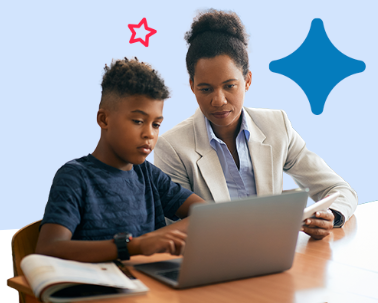Learning to code has become more accessible than ever thanks to the rise of distance learning.
Whether you’re starting from scratch or advancing your skills, online learning offers a flexible and supportive way to become confident in programming.
With the right tools, motivation, and learning strategies, anyone can succeed in mastering coding—no classroom required.
Why Learn Coding Online?
Distance learning offers unique benefits for aspiring developers:
-
Learn at your own pace and schedule
-
Access high-quality resources from anywhere
-
Choose from a wide variety of languages and technologies
-
Practice real-world projects and build a portfolio
-
Join global communities for support and feedback
These advantages make it easier for students, professionals, and career changers to take control of their learning journey.
1. Choose the Right Programming Language
Start by deciding what you want to achieve with coding. Each language has its strengths:
-
Python – Great for beginners, data science, and automation
-
JavaScript – Essential for web development
-
Java – Widely used in enterprise software and Android apps
-
C++ or C# – Popular in game development and high-performance applications
Pick one language and stick with it until you’re comfortable before exploring others.
2. Enroll in a Structured Online Course
Structured learning provides direction and builds skills step by step. Many reputable platforms offer beginner-friendly courses that include videos, quizzes, projects, and certificates.
Trusted platforms to explore:
-
Codecademy
-
freeCodeCamp
-
Coursera
-
edX
-
Udemy
Make sure the course fits your goals, learning style, and schedule.
3. Practice with Projects
Hands-on practice is key to learning how to code. Build small projects as you learn new concepts. Over time, your projects can grow in complexity and even become part of a personal portfolio.
Project ideas for beginners:
-
A to-do list app
-
A simple calculator
-
A personal website
-
A quiz game
Practicing with real projects reinforces your skills and helps you understand how different parts of code work together.
4. Join Online Coding Communities
Learning to code doesn’t have to be a solo experience. Online communities offer support, guidance, and inspiration.
You can:
-
Ask questions and get help
-
Share your progress and projects
-
Learn from others’ experiences
Look for communities on platforms like GitHub, Stack Overflow, Reddit, and Discord. Many courses also include student discussion forums.
5. Stay Consistent and Set Goals
Consistency matters more than speed. Set small, achievable goals and track your progress. Even 30 minutes a day can lead to major growth over time.
Tips for staying on track:
-
Create a study schedule
-
Keep a learning journal
-
Celebrate milestones
-
Stay curious and explore new topics
6. Use Interactive Coding Tools
Interactive tools help you test and run your code right in your browser. These tools are great for practicing without installing software.
Some useful platforms:
-
Replit
-
JSFiddle
-
PythonAnywhere
-
Glitch
These tools make it easier to experiment and learn from your mistakes.
Final Thoughts
Mastering coding through distance learning is completely achievable with the right mindset and resources. It’s a journey that builds not just technical skills, but also creativity, problem-solving, and confidence. Whether you’re preparing for a new career or simply exploring a new interest, coding online can be a rewarding and empowering experience.






